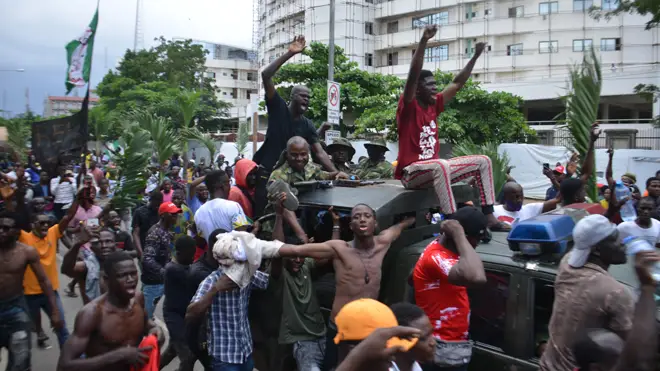
Richard Spurr 1am - 4am
21 October 2020, 07:09

Security forces have opened fire on people protesting about police brutality in Nigeria.
Authorities have imposed an indefinite 24-hour curfew in response to the demonstrations in Lagos amid mounting nationwide unrest following two weeks of widespread protests against police brutality.
The inspector-general of police deployed riot police across Nigeria and ordered forces to strengthen security around correctional facilities.
"The force will henceforth exercise the full powers of the law to prevent any further attempt on lives and property of citizens," a police statement read.
The announcement of the curfew in Lagos, a city of 14 million people, came after a police station was burned down in the city and two people were shot dead by police.
Lagos state governor Babajide Sanwo-Olu said the curfew will cover the entire city and surrounding area.
"Lives and limbs have been lost as criminals and miscreants are now hiding under the umbrella of these protests to unleash mayhem on our state," the governor said.
Authorities imposed a curfew in Benin City on Monday after a group of young men broke into two prisons freeing scores of inmates.
The protests began two weeks ago after a video circulated showing a man being beaten, apparently by police officers of the Special Anti-Robbery Squad, known as Sars.
Young protesters marched in cities across Nigeria under the banner #EndSARS.
In response, the government announced it would ban the anti-robbery squad, which human rights groups have blamed for widespread abuses, including torture and killings.
The demonstrators are demanding an end to abuses and respect for human rights in all parts of the police force.
The protests have stopped traffic in Lagos, the capital Abuja and many other large cities in Nigeria.
Lagos is the main centre of the protests which have blocked access to the airport, the country's largest, and protesters have barricaded the roads leading to the country's main ports.